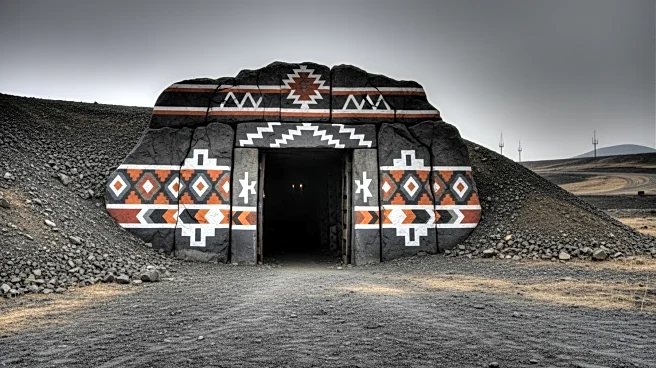What is the story about?
What's Happening?
A significant coal lease sale took place in southeastern Montana, marking the largest U.S. coal sale in over a decade. The Navajo Transitional Energy Company (NTEC), owned by the Navajo tribe, placed a bid of $186,000 to lease 167 million tons of coal on federal lands. This bid equates to one-tenth of a penny per ton, highlighting the diminished value of coal. The sale occurred at the Bureau of Land Management office in Billings, Montana, and NTEC was the sole bidder. The coal is located near NTEC's Spring Creek mine, which supplies five power plants scheduled to cease coal usage within the next decade. The Powder River Basin, where the lease is located, is the most productive coal field in the U.S. Despite the Trump administration's push to expand coal mining, the market for coal is expected to decline significantly over the next two decades.
Why It's Important?
This development underscores the ongoing challenges facing the coal industry in the U.S. Despite efforts by the Trump administration to bolster coal production, market forces and environmental policies continue to drive a shift towards cleaner energy sources. The low bid by NTEC reflects the declining demand for coal, as utilities increasingly favor natural gas and renewable energy. This trend has significant implications for the coal industry, potentially leading to further mine closures and job losses. Additionally, the sale highlights the tension between federal energy policies and market realities, as well as the environmental concerns associated with coal mining and burning.
What's Next?
Another coal sale is scheduled in central Wyoming, where the government plans to offer 440 million tons of coal near NTEC's Antelope Mine. However, the future of these leases remains uncertain, as many coal plants are being retired and new coal plants are unlikely to be built. The potential for increased coal exports to Asia could provide some relief, but logistical challenges such as port capacity limitations may hinder these efforts. The outcome of these sales and the broader market trends will likely influence future energy policies and the economic viability of coal mining in the U.S.
Beyond the Headlines
The coal industry's decline raises broader questions about energy policy and economic transition in coal-dependent regions. As the U.S. moves towards cleaner energy, communities reliant on coal mining face economic and social challenges. The transition to renewable energy sources presents opportunities for job creation and economic diversification, but also requires investment in workforce retraining and infrastructure development. The environmental impact of coal mining and burning remains a critical concern, with implications for climate change and public health.















